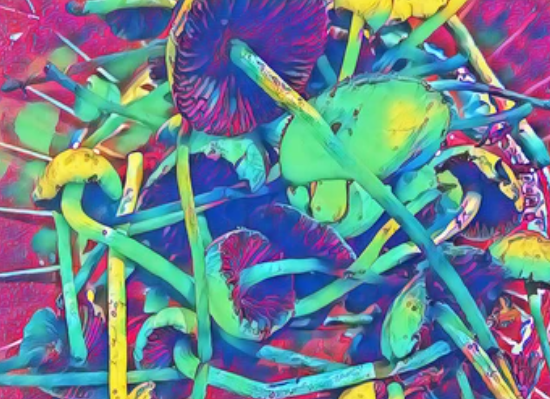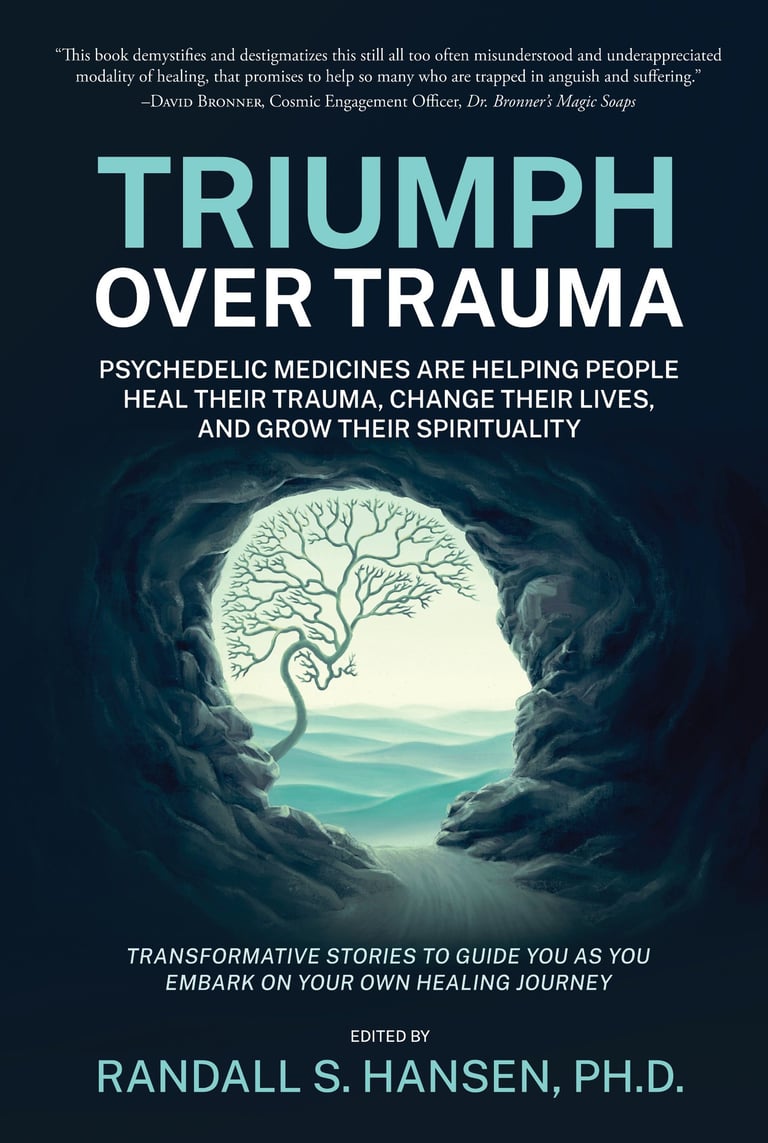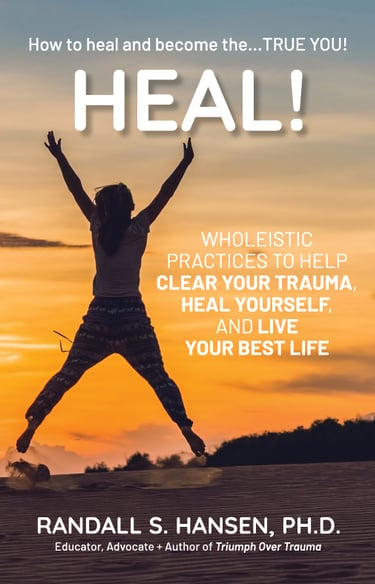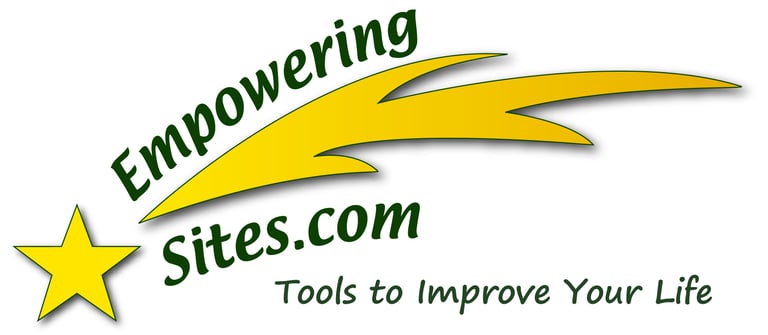Frequently Asked Questions About Psychedelic Medicines: 11-20
Here is a collection of the most commonly asked questions about psychedelics. Find your answers here: Psychedelic FAQs 11-20.
11. What are the dangers of consuming psychedelics?
These medicines are extremely safe -- when the substances are properly consumed, meaning the medicine has been properly and safely sourced and the dosage carefully measured.
If you are mentally and physically well/stable, these medicines have little or no side effects -- especially when compared to pharmaceutical drugs, which often have a litany of dangerous conditions and side effects.
The plant-based psychedelics (psilocybin, ayahuasca, ibogaine) have been safely consumed by indigenous people for thousands of years. LSD is derived from ergot (a fungus that grows naturally on grains); ergot also has been used for centuries to produce psychedelic beers and wines.
Of course, before making any changes, people should consult with their doctors -- especially those with health issues.
12. What can I expect when taking a psychedelic medicine?
Each medicine has different aspects, including intensity and duration length, so your first step should be understanding what to expect with the medicine you have chosen to use -- and the dosage you will be consuming.
With all these medications, there is a ramp up after ingestion that includes mostly physical characteristics -- including temperature fluctuations, sensitivity to light and sound, and often nausea. During the peak period of the medicine, expect to have visual patterns and distortions with possible hallucinations (with eyes open or closed, depending on dosage); deep insights and images of the past; conversations with yourself or other beings; and be transported by the music; you may also encounter an out-of-body experience. During the ramp down, you may slowly get your appetite back; more insights will continue to flow; and you may experience a feeling of joy or satisfaction... even Zen.
After the journey, it is important to hydrate and eat, as well as rest your brain.
13. Should I be afraid of having a bad trip?
Get that bad trip image out of your head -- those so-called "bad trips" we witnessed in anti-drug advertising and movies is total propaganda. As long as you follow proper procedures for an intentional healing journey using a psychedelic medicine, you will not die nor will you lose your mind.
A better question might be, should I be afraid of what I might encounter during a journey? The answer is still a no, but you should be prepared to face some challenging issues/images/memories.
We talk about challenging trips, not bad trips. And yes, you may be faced with some challenging issues, some intense visions -- but you need to face these things for healing to occur. It's also because of the possible challenges, that most people recommend that you take these medicines in situations where you will have support -- support from a clinician, facilitator, trip sitter, or sober friend.
14. How can I ensure that I have a good trip?
Preparation and intention. With psychedelic medicines, best practices include what's called set and setting.
It should be noted that there are no guarantees for a "good" or successful trip; that said, the more preparation you do beforehand, the more likely you will have the kind of journey you are hoping for.
Set: Shorthand for mindset -- and it's all about being mentally prepared for your psychedelic medicine journey. This term is about setting a goal or intention for your journey -- what you hope to accomplish/discover/experience. It also covers the all-important mindset of surrendering to the medicine. One of the top reasons for not achieving a successful journey is when participants do not fully surrender to the medicine -- and the deeper a thinker you are, the harder it will be to fully surrender.
Setting: This term deals with your feelings of comfort and safety in the location in which you will consume the medicine. If you do to a clinic or healing center, the setting should be firmly established. If you are planning to do a personal journey, then it's about finding the best and most comfortable and conducive spot -- for you.
Finally, preparation also involves eating and living as cleanly as possible for at least a week before your psychedelic experience.
15. Can I take a psychedelic when I am alone? What is a trip sitter? Do I need one?
Yes, you can, but it is ill-advised to do so when ingesting large doses of the medicine.
This question is not as simple as it looks -- and neither is the answer. For very low doses and microdosing, there is no real need for a trip sitter, though some people still hire one.
For your first journey, most recommend having at a minimum, a sober friend who knows what you are doing and will watch over you. If no one is available, or you would rather have an experienced professional, then you should consider hiring a trip sitter -- a facilitator/guide who will sit with you as you journey through the medicine.
At higher doses, unless you are extremely experienced, you should always have someone with you.
16. I have heard of brains being fried and birth defects from psychedelics. True?
No truth whatsoever; both claims were part of the disinformation campaign from the War on Drugs.
The more recent studies of the effects of psychedelics on the brain are positive and exciting... and they show that psychedelics can improve and help the brain heal. Psychedelics are seen to increase neuroplasticity, meaning that these medicines help release damaging habits and negative associations by building new connections within and across the brain.
In some very rare cases (mostly studied with LSD), some people experience Hallucinogen Persisting Perception Disorder (HPPD), a non-psychotic disorder that involves seeing hallucinations, halos, and flashbacks) that usually resolves itself within a year.
Birth defects? No. Scare tactics. Recent studies from scientists around the world prove that psychedelics do not cause any genetic damage and birth defects.
17. What are intentions -- and why do I need them?
Setting intentions is one of the essential preparation steps in preparing for a successful psychedelic experience.
Intentions are about clearly stating your motivation for your psychedelic journey -- and help keep us focused on the concept that we should be taking an active part in setting the direction of our experience.
Intentions can be fairly open and general, such as "show me what part of me needs healing."
Intentions can also be very specific, such as "help me heal from my childhood sexual abuse" or "Help me break my addiction to alcohol."
What should your intention be? Start with the big question -- the why. Why are you embarking on a psychedelic medicine journey? What are you hoping to accomplish? What negative elements/thinking do you want to eliminate? What kind of transformation are you seeking? Are you seeking a deeper connection to the world -- to a divine being?
But do know that even with a solid intention, the medicine is going to show you what it knows you need to see, so be prepared to roll with whatever happens during your journey.
18. What is integration -- and why do I need it?
Without integration, you are simply wasting time and money taking psychedelics -- or basically doing so for more recreational purposes.
Integration is about making sense of your psychedelic experience.
Integration is an integral part of figuring out how to incorporate the lessons learned from your psychedelic journey into your life, figuring out how to heal from any previously unknown traumas, figuring out what all the images you saw mean, what the whole experience means.
Most people integrate through journaling -- either electronically or with pen and paper. Others paint, draw, create. The process you use is not nearly as important as doing the work.
You can do most of your integrating by yourself, contemplating all that you discovered in your journey, or, you can integrate with others -- including hiring an integration coach.
Integration is an ongoing process -- and some would say a lifelong process.
19. What if I don't want to hallucinate, but do want healing?
Numerous companies within the psychedelics industry are developing and/or testing versions of these medicines that can still have the healing benefits without the hallucinations.
A non-hallucinogenic psychedelic medicine could be the breakthrough that truly transforms the healthcare system and brings psychedelic medicines into the mainstream.
Do your research... these medicines are coming online soon. And without the hallucinations, psychedelics could become even more widespread, eliminating the need for clinics, trip sitters, and more.
That said, do not shy away from the complete psychedelic experience... the power of these psychedelics to open the mind and heart are truly unique and amazing -- profound experiences that are always touted as one of the "top five" experiences of people's lives.
20. What is microdosing?
Microdosing is consuming an extremely low dose of a psychedelic substance. Microdosing is another option for using these medicines -- without having to worry about the hallucinogenic aspects of a full-on, full-dose journey.
To be clear, with microdosing, you can get many of the benefits of the medicine without getting the "psychedelic" experience.
The idea behind microdosing is to encourage an increased state of perception and calm, rather than going into a hallucinating state. Thus, microdosing is taking a minuscule dose of the medicine... so small that you will not have any hallucinations of even feel high.
People are microdosing psychedelics to help deal with anxiety and depression -- while others are doing so for an increase in productivity, to enhance perception, to sharpen focus, deepen levels of creativity, to foster spiritual growth. Most of the success stories with microdosing are self-reported and anecdotal, but more quantitative research is being conducted.
Bonus: Isn't cannabis a psychedelic?
While cannabis is most definitely a master plant that is worthy of study and medicinal use -- one that can even have some psychoactive properties -- most experts do not consider cannabis to be a psychedelic. That said, research is discovering amazing benefits from cannabis, especially in relation to post-traumatic stress, inflammation, anxiety, pain, and sleep.
Finally, the differences between psychedelics and cannabis are clear. People report taking psychedelics for the purpose of healing and transformation, while many people report taking cannabis recreationally (and less for healing). For the vast majority of people, psychedelics are taken with intention, not recreationally.
Go back to view the first 10... Psychedelic FAQs 1-10
Additional Psychedelic Posts from Dr. Randall
Five Things to Consider Before Jumping into Healing Through Plant Medicines
Reasons to Consider Using a Trip Sitter for Your Psychedelic Experience
Additional Psychedelic FAQs


Dr. Randall Hansen is an advocate, educator, mentor, ethicist, and thought-leader... helping the world heal from past trauma. He is founder and CEO of EmpoweringSites.com, a network of empowering and transformative Websites, including EmpoweringAdvice.com.
He is the author of the groundbreaking Triumph Over Trauma: Psychedelic Medicines are Helping People Heal Their Trauma, Change Their Lives, and Grow Their Spirituality and the well-received HEAL! Wholeistic Practices to Help Clear Your Trauma, Heal Yourself, and Live Your Best Life.
Dr. Hansen's focus and advocacy center around true healing ... healing that results in being able to live an authentic life filled with peace, joy, love. Learn more by visiting his personal Website, RandallSHansen.com. You can also check out Dr. Randall Hansen on LinkedIn.






